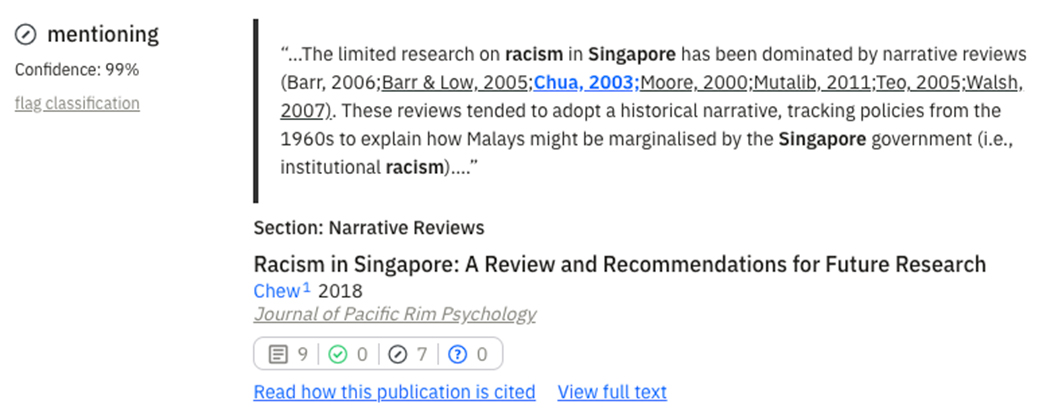
SMU Libraries has subscribed to scite, a new generation discovery citation index that covers 900 million citation statements.
Similar to traditional citation indexes like Web of Science and Scopus, you can use it to find citation counts of papers, authors, journals and institutions. However scite goes beyond that in two ways by allowing you to:
- Search for expert analyses and opinion on any topics
- Check if research papers have been supported or contrasted
Find expert analyses and opinion on any topic
Most academic search engines like Google Scholar, Scopus, JSTOR search within title, abstract, subject etc. While scite can do this too, by default in “Statements” mode, it is set to search within “citation statements”.

In that mode, scite is able to match your keywords to the citation statement (the sentence with citations) and citation context (sentence before and after citation statements). This allows you to find research findings on specific topic.
Imagine you are looking for researcher findings on racism in Singapore. Using scite, it provides not just papers on Racism in Singapore (by matching title, abstract etc) but also highlights various citations and findings on the topic.
For example from this search, you can see that Chew(2018) states that “the limited research on racism in Singapore has been dominated by narrative review” followed by cited papers that you can check out.

Similarly you can see in another result that Chew, Young & Tan (2019) suggests that based on a small number of quantitative studies, there is little racism in Singapore and you can see the studies he looked at.

Is that really true? Just because Chew, Yong & Tan (2019) made the statements doesn’t mean you have to agree! You can follow the cites they made to decide yourself! As you can see, scite allows you to see what the authors wrote about the topic and what papers they cited in support of their statement which can be very helpful to explore the literature.
Want to learn more?
scite is available for free limited use but to benefit from SMU’s subscription, create an account with premium access through the following steps:
- Go to https://scite.ai/
- On scite homepage, click “Sign up”
- Register with your SMU email
To find out more refer to the scite FAQ or guides, or watch the latest webinar by scite on Youtube.
We will be organising a training session for the SMU community between late November to December. Look out for the invite to the training session!